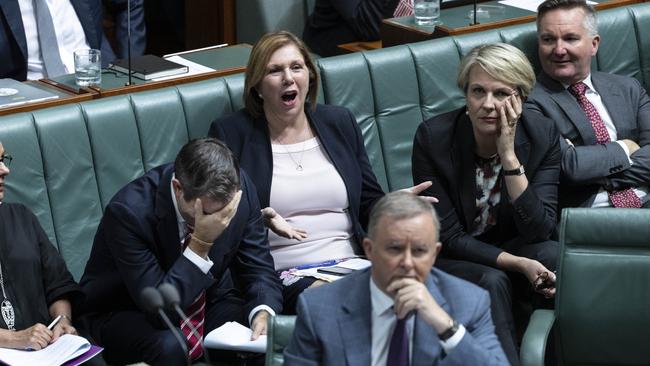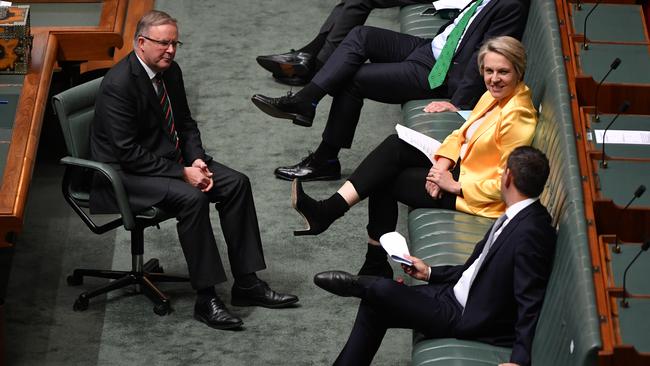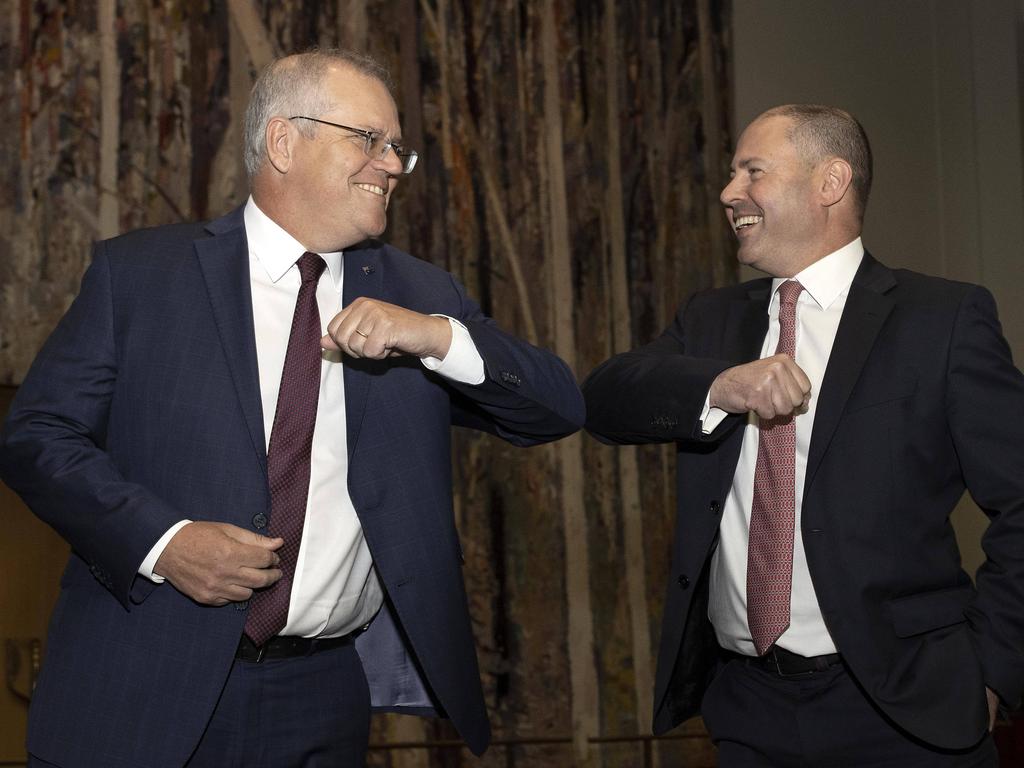
Yes, the states have done the lion’s share of the heavy lifting, but that doesn’t change the reality that Morrison as Prime Minister gets much of the credit for pandemic management, meaning that his re-election come the end of this year is all but guaranteed.
So what can Labor do? Indeed what should Labor do?
There are serious players in the senior ranks of the opposition who believe it should just ride out the down times and live in hope; lose honourably (the polls are OK) or take advantage of an unexpected change in circumstances. They take an “anything can happen” attitude to electoral politics, pointing to the miracle win Morrison pulled off last time. Swings and roundabouts, they say. However, there isn’t a great deal of confidence in their voices when they tell you that.
Others say a change from Albanese to a more competitive leader needs to be made this year, but the timing will be important. Put forward Jim Chalmers too soon and a future talent gets eaten alive by an operator such as Morrison. Tanya Plibersek is someone the party could turn to just before an election to give the opposition momentum. Jacinda Ardern managed to achieve success along those lines despite the strong economic management of the conservative government in New Zealand. But just how analogous such a move would be here, beyond gender comparisons, is difficult to assess.
Chalmers likely waits, he’s in no rush. And Labor probably can’t find a way to time any shift to Plibersek sufficiently well to overcome doubts about her. Morrison determines the timing of the next election, not Labor.
Then there is Chris Bowen. The senior NSW Right figure is still serving time in the naughty corner for his role in Labor’s defeat at the 2019 election, thrust down the ranks of the shadow ministry. As opposition Treasury spokesman in 2019, Bowen bore the brunt of criticism for the economic reforms believed to have cost Labor victory. Alongside Bill Shorten, of course, who still has leadership ambitions by the way.

The fact it was Plibersek who used her position as Labor’s deputy leader at the time to insist on high-spending policies, that led Bowen to insist on high-taxing policies to go with them to keep the books in order is a detail lost on sometimes superficial leadership calculations.
Bowen is an articulate politician who, given the chance to prove his wares as treasurer, would have done well, perhaps using the position as a stepping stone to the Lodge.
In the minds of Shorten and Bowen, their leadership team was supposed to resemble that of Bob Hawke and Paul Keating. The agenda they ran on was similarly bold to the one Hawke and Keating enacted. But in the end Shorten didn’t have Hawke’s charisma and made the task of achieving victory harder by spelling out his agenda before the election, not after it like Hawke. Virtuous and upfront, to be sure, but at a high price as it turned out.
In all the considerations of what Labor needs to do to be competitive at the next election, and who should lead it, there is also the incumbent to consider. Albanese isn’t a mile behind in the opinion polls, but the worry among his colleagues is that if Labor enters an election campaign behind rather than in front, the Coalition is likely to extend its lead and win handsomely.
Were that to happen, sitting MPs would lose their seats. That can sometimes be enough to stir them into action when it comes to pushing for a change of leader, notwithstanding Labor’s leadership rules that make it hard to remove the incumbent.
Team Morrison, from the moment it was elected, began targeting Labor seats it could win at the next election, remembering the government’s majority is thin.
The rough sketch sees the conservatives looking to hold the line in states such as Queensland and Western Australia, where they are dominant, as well as in Tasmania. Morrison then would go on the hunt to pick up seats in NSW, his home state, and Victoria. The former is more likely to see gains than the latter, according to Liberal strategists. What happens in South Australia is up in the air.
This mud map has a bearing on how Labor approaches the next election, too, because whoever leads the party can have an impact on the opposition’s strengths and weaknesses in certain parts of the country. A Queenslander such as Chalmers leading Labor may be able to do up north what Kevin Rudd did in 2007. John Howard lost that election in Queensland alone, partly off the back of parochialism.
Labor hasn’t been competitive federally in WA since Kim Beazley’s leadership. There were signs at the 2019 election of a swing back to Labor, but that was a mirage. At the state level Mark McGowan is dominant for Labor, but there are few signs of that translating federally. The federal Labor team from WA isn’t strong.
Morrison’s awareness of the need not to lose WA voters is one reason he capitulated on a constitutional challenge to borders and rarely attacks the popular McGowan directly. Morrison doesn’t want McGowan going all in for Labor federally. Morrison won’t even confirm if he’ll head west to help state Liberals campaign ahead of the WA election in March. While evidence is scant that premiers can help turn states their party’s way federally, Morrison wouldn’t want to see McGowan try. Not with the WA Premier’s 90 per cent approval rating dwarfing that of the Prime Minister, or any other leader in the country for that matter.
Besides, there are advantages for premiers in having a prime minister of a different partisan colour. Voters don’t consciously choose to balance out representation between the parties at state and federal levels, but the electoral data tells us it often happens that way. This is why Howard was quietly happy to see a gaggle of Labor premiers succeed during his long tenure as prime minister.
The odds remain in Albanese’s favour to survive, but it could be a bumpy ride, and survival is anything but certain. He has been dealt a bad hand. After taking over the reins of a shattered party Albanese looked in the box seat a year ago. Morrison’s self-pity in the wake of being called out for his jetsetting holiday to Hawaii as his home state burned helped to sink his approval ratings. The contrast to a hands-on Albanese helping out in bushfire-affected areas couldn’t have been greater.
But 12 months on it is Morrison who is dominant. Notwithstanding myriad problems on his plate, Morrison has the opposition’s measure going into the first week of parliament this year.
Peter van Onselen is a professor of politics and public policy at the University of Western Australia and Griffith University.







Parliament resumes next Tuesday and it’s likely to be a lopsided affair. Anthony Albanese is under pressure while Scott Morrison and his government continue to enjoy the warm glow attached to Australia successfully managing the pandemic — notwithstanding problems surrounding the vaccine.